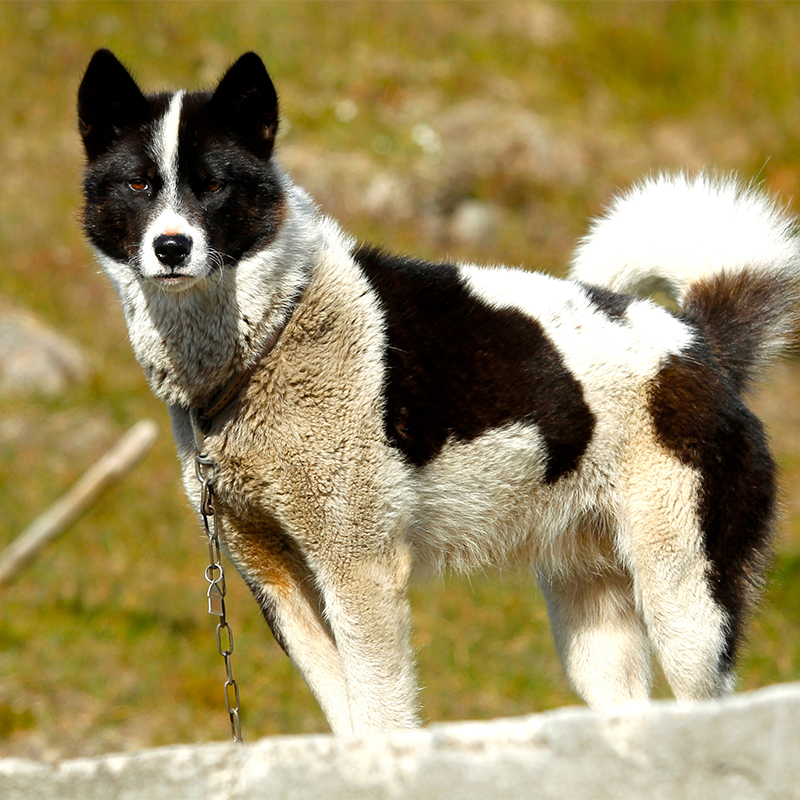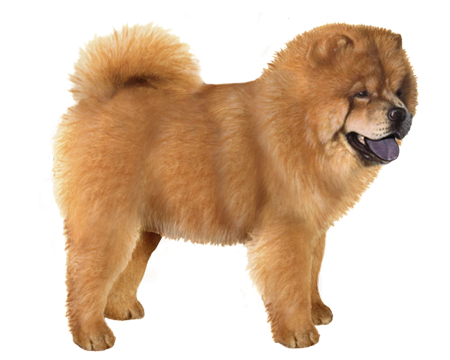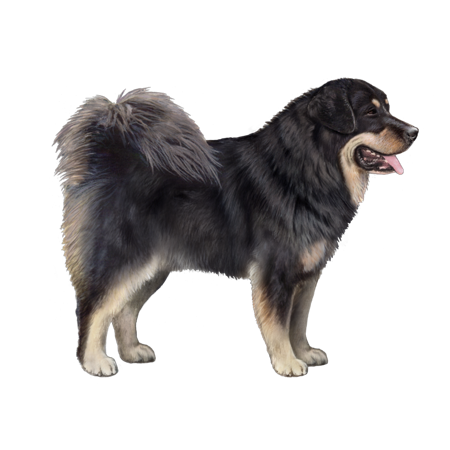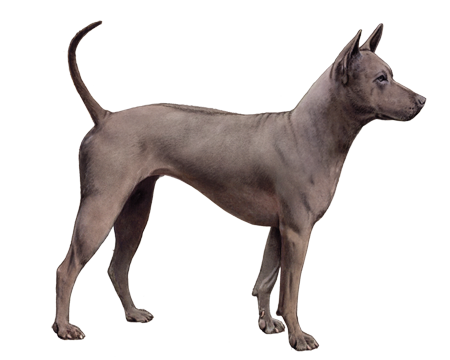
Greenland Dog
Greenland Dogs are hardy, stoic working dogs that love spending time outdoors. If you're looking for a hiking buddy that's happy to carry your gear, the Greenland Dog is the breed for you.
Interested in discovering if your dog is a Greenland Dog?
Check out Wisdom Panel's DNA tests.

Greenland Dog Traits
General Appearance
The Greenland Dog is a muscular, spitz-type breed built for endurance and strenuous work in arctic conditions. These pups have short, rectangular bodies, powerful legs, and big, rounded feet with strong nails and pads.
Coat and Coloring
A thick double coat consisting of a dense undercoat and straight, coarse outercoat protects the Greenland Dog from harsh weather. The hair is short on the head and legs and longer on the body. Thick fur on their ears protects these dogs from frostbite.
The breed standard permits all coat colors and patterns except merle markings and albinos.
Distinctive Physical Traits
Greenland Dogs have broad, wedge-shaped heads, triangular pointed ears, and a thick, bushy tail that they carry in a curve or curled over the back.
Greenland Dog Temperament
This active, tireless breed is a great choice for outdoorsy families that love adventures. These pups get along with most people but don't tend to attach themselves to any one person.
Greenland dogs don't bark, but they do howl and often serenade their humans (and their neighbors). They also make a screaming sound that is typically joyful, though it may not seem that way to those unfamiliar with the breed.
These pups form close bonds with other dogs in their "pack" but can be territorial around new dogs. Socializing them when they're young will curb this behavior and help them develop into well-mannered adult dogs.


Greenland Dog History
One of the oldest dog breeds, the Greenland Dog likely descended from dogs the Thule people used for transportation in Siberia more than 1,000 years ago. And genetic testing revealed that Greenland Dogs share genetic similarities with the now-extinct Taimyr wolf.
Inuit people brought the dogs to Greenland 850 years ago, where they remained isolated from other breeds. Today, efforts are underway to preserve the breed's purity and cultural history.
Greenland Dog Care
Nutrition
These dogs thrive on a high-quality diet formulated for their life stage. Working Greenlands need their diets adjusted seasonally. (More protein during the winter months when they're pulling sleds, and less in the summer when they're not as active.)
To help your dog maintain a healthy weight, measure their portions to avoid overfeeding and keep an eye on how many treats you're giving them. As a guideline, treats should make up no more than 10% of a dog's calories.
Grooming
For most of the year, weekly brushing is enough to keep the Greenland's coat in good shape. But when they blow their coats (once a year), more frequent brushing can help remove all the loose fur—and spare your furniture.
To reduce your pup's risk of ear infections, check their ears regularly and clean them as needed to remove wax build-up and debris. Nail trims should also be part of the grooming routine since overly long nails can cause pain and potentially lead to problems running or walking.
Lastly, good dental hygiene will support your dog's overall health. Dental disease is one of the most common health conditions in adult dogs. Left untreated, it can contribute to other serious issues. In addition to professional cleanings, establish an at-home dental care program that includes regular teeth brushing and veterinarian-recommended dental chews.
Exercise
These energetic pups need a lot of daily exercise. They make great hiking companions and running buddies. They're also happy to pull their people in sleds or wagons. Dog sports, such as agility and tracking, are also a fun way for this breed to burn energy.
Training
The Greenland is typically obedient and eager-to-please. But it's important to establish yourself as the pack leader and set clear boundaries. A firm but gentle approach with lots of positive reinforcement works well for this breed.
Breed Group
Asian and Oceanian
The Asian and Oceanian group is comprised of breeds whose origins lie in Asia, which have spread as far as Australia, the islands of the Pacific, and the Arctic. This group is possibly the most ancient of all breed groups and were bred for a variety of purposes, including guarding, hunting, and as draft dogs.












































